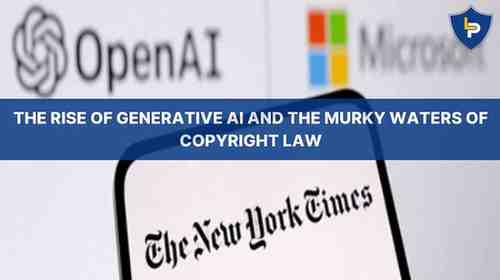The Rise of Generative AI and the Murky Waters of Copyright Law

Generative artificial intelligence (AI) has opened a treasure trove of opportunities for businesses, but it’s also cast a long shadow of legal uncertainty. Lawmakers and courts are scrambling to catch up, leaving the question of how these sophisticated language models interact with copyright law unanswered.
While most copyright infringement lawsuits in this arena focus on the content generated by the AI, another battleground exists: the data used to train them. Several authors have accused OpenAI and its peers of using their works without permission to “teach” their language models.
However, a recent lawsuit filed by non-fiction author Julian Sancton takes a new approach by dragging Microsoft into the picture. Microsoft’s close ties to OpenAI, involving both investment and system integration, are now under scrutiny.

Sancton, filing in the Southern District of New York, seeks to represent a class of authors whose work allegedly ended up in OpenAI’s training data without their consent. He claims OpenAI copied thousands of books without permission, infringing on copyright.
Adding salt to the wound, he accuses Microsoft of complicity due to its extensive involvement in OpenAI’s growth and commercialization over the past four years.
The lawsuit paints a picture of a multi-billion dollar business built on, according to Sancton, blatant disregard for copyright law.
Seeking both financial compensation and an injunction to halt the alleged infringement, Sancton’s case could be a landmark decision. The outcome will not only define OpenAI’s future but also cast a light on its controversial partnership with Microsoft.

